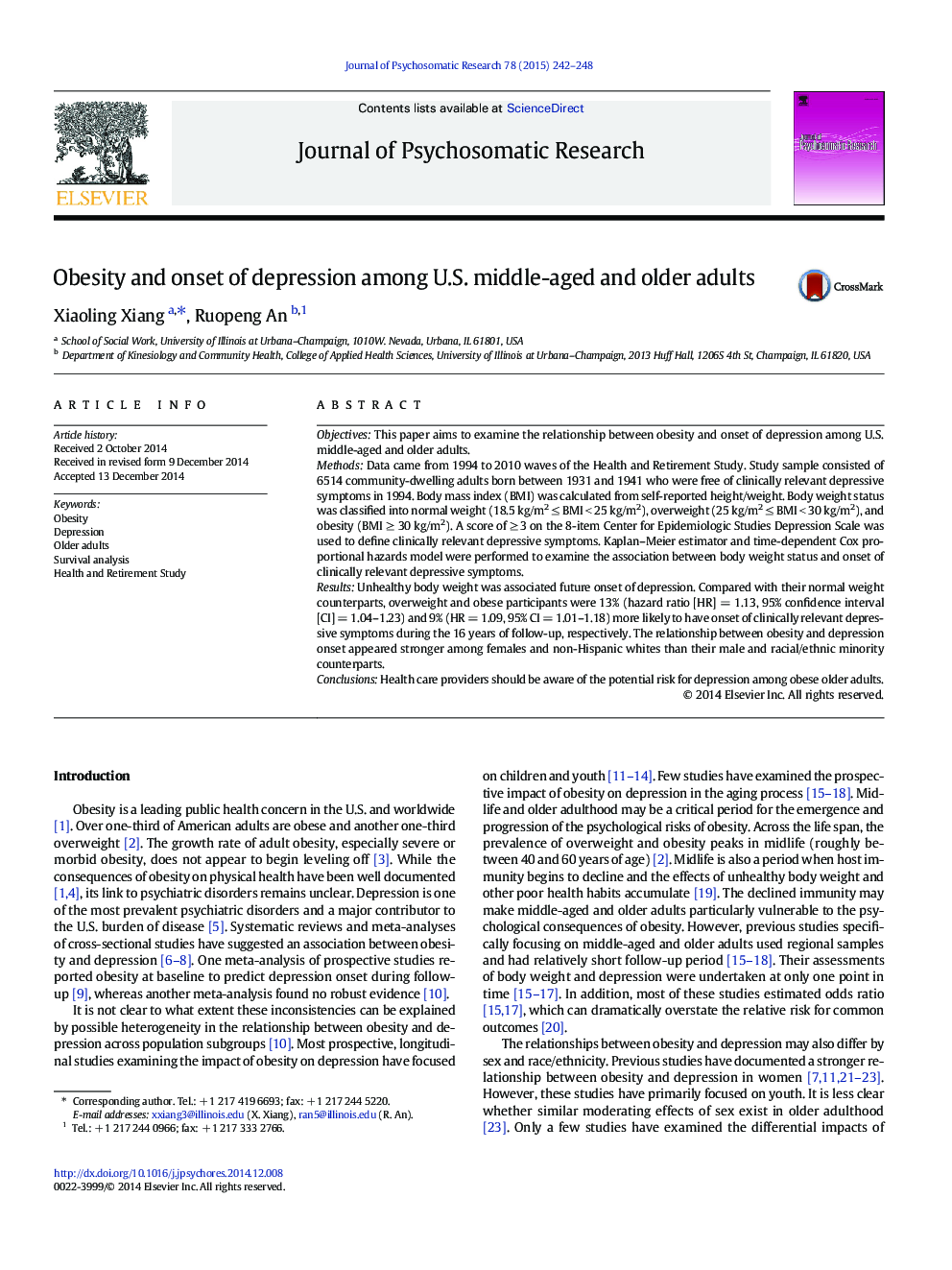| Article ID | Journal | Published Year | Pages | File Type |
|---|---|---|---|---|
| 10469507 | Journal of Psychosomatic Research | 2015 | 6 Pages |
Abstract
Objectives
This paper aims to examine the relationship between obesity and onset of depression among U.S. middle-aged and older adults.
Methods
Data came from 1994 to 2010 waves of the Health and Retirement Study. Study sample consisted of 6514 community-dwelling adults born between 1931 and 1941 who were free of clinically relevant depressive symptoms in 1994. Body mass index (BMI) was calculated from self-reported height/weight. Body weight status was classified into normal weight (18.5 kg/m2 ≤ BMI < 25 kg/m2), overweight (25 kg/m2 ≤ BMI < 30 kg/m2), and obesity (BMI ≥ 30 kg/m2). A score of ≥ 3 on the 8-item Center for Epidemiologic Studies Depression Scale was used to define clinically relevant depressive symptoms. Kaplan–Meier estimator and time-dependent Cox proportional hazards model were performed to examine the association between body weight status and onset of clinically relevant depressive symptoms.
Results
Unhealthy body weight was associated future onset of depression. Compared with their normal weight counterparts, overweight and obese participants were 13% (hazard ratio [HR] = 1.13, 95% confidence interval [CI] = 1.04–1.23) and 9% (HR = 1.09, 95% CI = 1.01–1.18) more likely to have onset of clinically relevant depressive symptoms during the 16 years of follow-up, respectively. The relationship between obesity and depression onset appeared stronger among females and non-Hispanic whites than their male and racial/ethnic minority counterparts.
Conclusions
Health care providers should be aware of the potential risk for depression among obese older adults.
Related Topics
Life Sciences
Neuroscience
Biological Psychiatry
Authors
Xiaoling Xiang, Ruopeng An,
